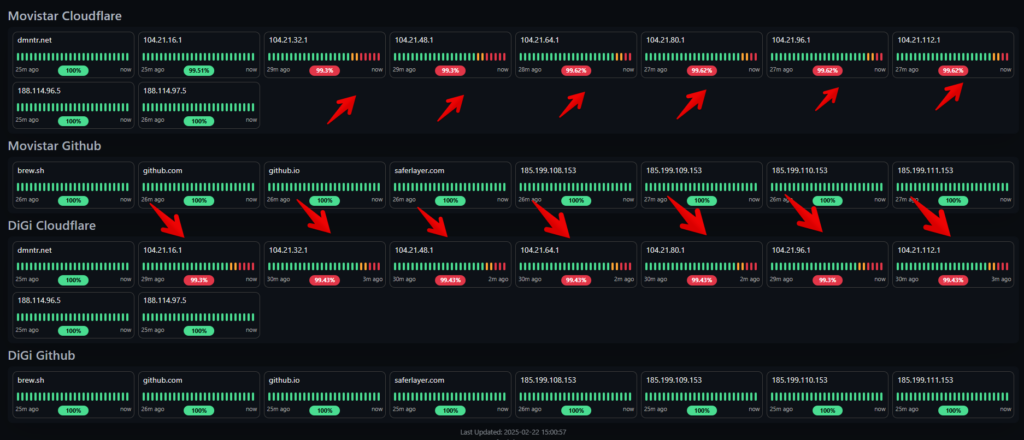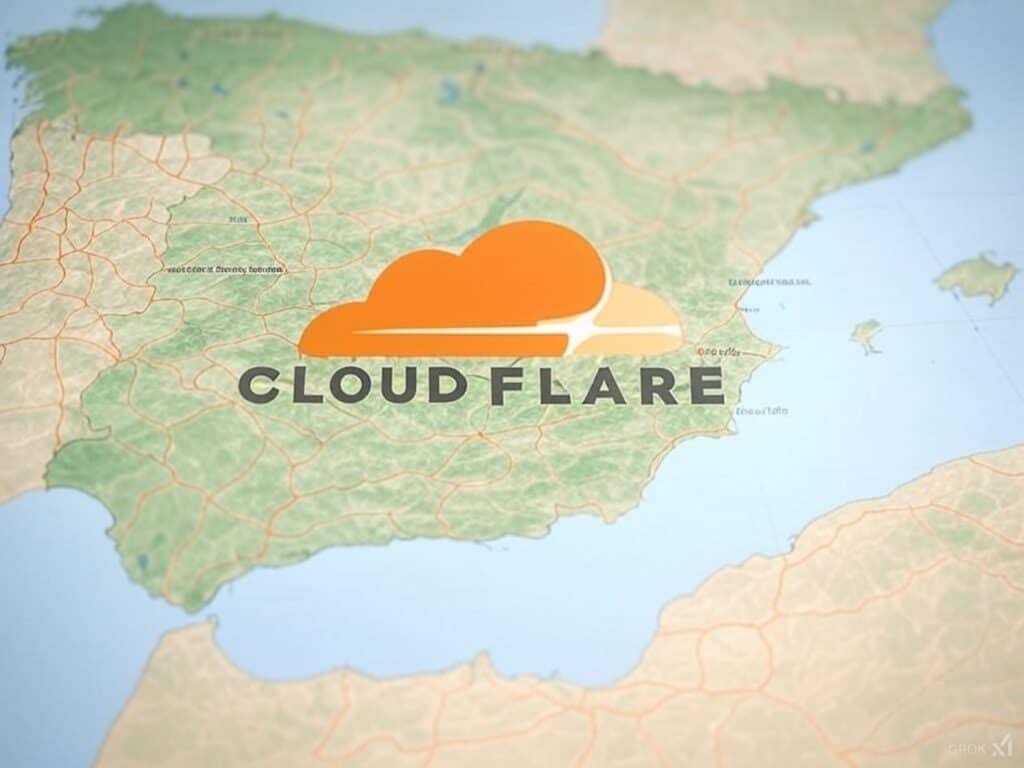A new wave of indiscriminate IP blocking by major Spanish telecom operators has sparked widespread concern over internet freedom and transparency. Following a request from LaLiga, Spain’s top football league, ISPs including Movistar, Digi, Orange, and Vodafone have blocked access to over 100 IP addresses, allegedly linked to unauthorized football broadcasts. However, this aggressive anti-piracy measure has had significant collateral damage, affecting businesses, legitimate websites, and regular internet users across the country.
Collateral Damage: Thousands of Businesses and Users Affected
The broad blocking of IP addresses has disrupted access to numerous websites and online services, many of which have no connection to illegal streaming. One of the most affected companies is Cloudflare, a global content delivery and security provider whose clients in Spain have reported service disruptions, website downtime, and business losses.
The issue stems from the fact that IPv4 addresses are a limited resource and are often shared among multiple businesses and services. When ISPs block an IP address, they are not only blocking suspected piracy sites but potentially cutting off thousands of legitimate websites that rely on the same infrastructure.

The impact has been felt across multiple sectors:
- E-commerce platforms and online businesses have suffered losses as their websites became temporarily unreachable.
- Developers and tech companies using Cloudflare have faced connectivity issues and security disruptions.
- Ordinary users have struggled to access essential services, with no explanation or warning from their ISPs.
These sweeping blocks have raised concerns over Spain’s approach to digital rights, as many see this as a dangerous precedent for internet control in the country.
Cloudflare Fights Back, Raising Questions on Net Neutrality
Cloudflare has announced legal action to challenge the court ruling that enabled these blocks, arguing that the decision violates net neutrality principles and disproportionately harms businesses that are not involved in illegal streaming.
This controversy highlights a broader debate: should ISPs have the power to indiscriminately block access to IP addresses without transparency or clear oversight? While LaLiga argues that its rights must be protected, critics warn that such heavy-handed measures are akin to censorship and undermine the openness of the internet.
“The internet should not be collateral damage in the fight against piracy,” stated a cybersecurity expert. “Blocking entire IP addresses without distinguishing between legal and illegal services is a reckless approach that harms innocent businesses.”
Are There Better Solutions to Fight Piracy?
Digital rights advocates and legal experts suggest more targeted, transparent, and effective methods to combat piracy without impacting legitimate users:
- Blocking specific URLs instead of entire IP addresses, allowing for more precise targeting.
- Leveraging AI-based monitoring to detect and take down illegal streams without disrupting other services.
- Cooperating with hosting providers to directly address offending sites rather than using widespread IP bans.
Despite these alternatives, the Spanish government and ISPs have continued to favor sweeping blocks, a practice that some warn could set a dangerous precedent for internet control in the country.
Spain’s Internet Transparency at Risk?
The situation raises serious concerns about digital freedom in Spain. By allowing private entities like LaLiga to push for such broad internet restrictions, Spain risks falling behind in terms of transparency and open internet policies. This also raises the question: if courts and ISPs can block websites so easily for copyright reasons, what’s stopping them from expanding these powers further?
While Cloudflare prepares for a legal battle, affected businesses and internet users continue to face disruptions. If these types of aggressive and indiscriminate blocking strategies become the norm, Spain could gain a reputation for restricting online access rather than ensuring a fair and open digital environment.
For now, the question remains: can Spain balance anti-piracy efforts with the protection of internet freedom, or is this just the beginning of a more restrictive digital era?
Source: Redes Sociales

